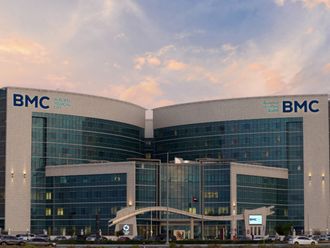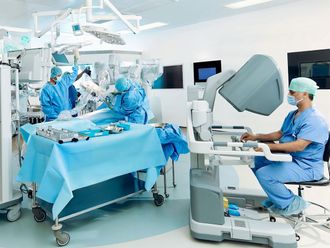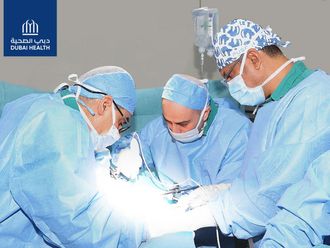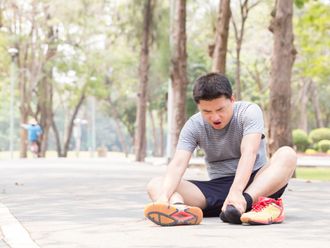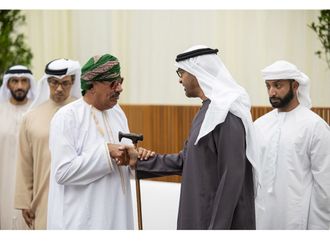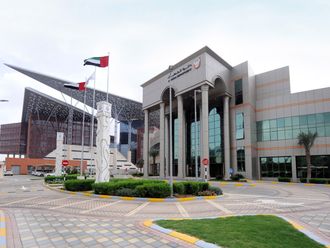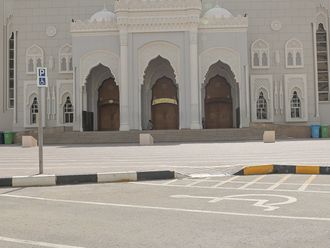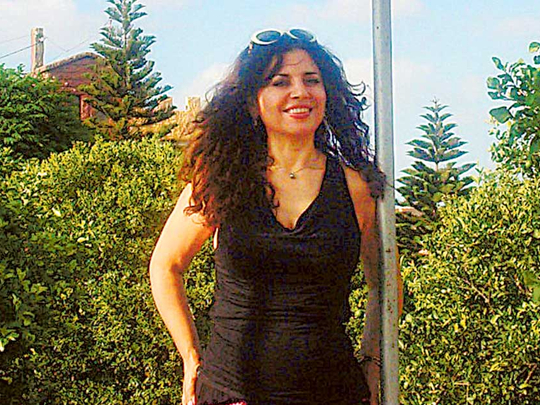
Dubai: A completely paralysed Syrian expatriate has received a new lease of life after being able to walk again and lead an active life, thanks to the efforts of the Dubai Rehabilitation and Physiotherapy Centre (DRPC).
Shadia Ahmad, who works as an electrical engineer in Dubai, found out 15 years ago that she has a big tumour inside her spinal cord — a rare case — that affects one in 10 million people worldwide.
“I found out about the tumour by coincidence. At the beginning it wasn’t causing me pain, I just had little disturbance in my right leg when I play certain sports, but in 2002, two weeks into my pregnancy I became paralysed and couldn’t walk,” Ahmad said.
Ahmad travelled to Germany to have a surgery to remove the tumour. But after the surgery, she was completely paralysed and the doctors told her she would not be able to walk again.
“However, when I came back to the UAE, I noticed that while I couldn’t walk or stand up I could move my one toe, which the doctors said was a good indicator. So I started with getting physiotherapy at the DRPC with the help of Dr Suad Trebinjac, Medical Director of the centre, ” she said.
After two years of physiotherapy, Ahmad said she was able to walk with the aid of two crutches.
“I was then gradually able to walk with one crutch and lately completely on my own. As I still had chronic pain, I decided to get bone marrow injections and intensify my rehabilitation efforts as my goal was to reduce my pain and improve my balance and I succeeded in fulfilling my objective by 50 per cent.”
“Willpower and physiotherapy is 90 per cent of the reason that I can now walk again. I received physiotherapy in Germany and Thailand but I must say the treatment I received at the Dubai Rehabilitation and Physiotherapy Centre is the best.”
Shadia called on those who are advised to go for physiotherapy to believe in its healing power, adding that while progress might be slow, it is effective and worth the patience and effort.
“I know how devastating and difficult the situation could be, especially in the beginning but I advise all people with spinal cord injuries and their families to focus on the positive side first. They must appreciate that they are alive after such an injury and then try to accept the situation and work hard to improve it,” she said.
“I am a real life example that physiotherapy is effective way to get it treated,” Shadia said.
Dr Trebinjac said that Shadia received physiotherapy that was able to improve her muscle power, coordination and endurance balance.
He said that the DRPC has 83 specialised medical staff and 40 therapists. “They offer a number of services that aim to improve the quality of life’.
He said DRPC services are not limited to physiotherapy only. We also focus on rehabilitation and physical medicine, occupational therapy, speech therapy, orthoptist fabricating devices, nutritional programmes to name a few.
He added that the centre now provides minimally invasive procedures that involve regenerative tissue injections that include dextrose prolotherapy, platelets rich plasma, hyaluronic acid and cellular matrix.
He said that the centre ultimately aims to help patients go back to their normal life and live independently. The centre receives around 100 patients daily.


